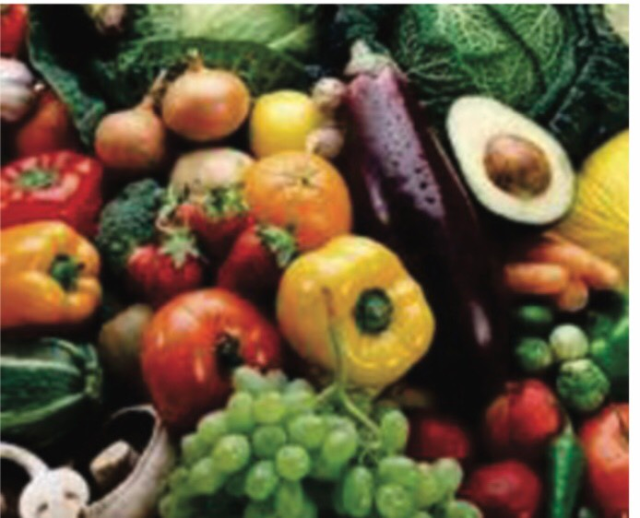10.1 Look at the picture. Where were these people 3 o’clock yesterday afternoon?
1. George was in bed.
2. Carol and Jack were in the cinema.
3. Sue was in the station.
4. Mr and Mrs Hall were in the restaurant.
5. Ben was in the see.
6. I was at home.
10.2 Put in am/is/are (present) or was/were (past).
1. Last year she was 22, so she is 23 now.
2. Today the weather is nice, but yesterday it was very cold.
3. I am hungry. Can I have something to eat?
4. I feel fine this morning but I was very tired last night.
5. Where were you at 11 o’clock last Friday morning?
6. Don’t buy those shoes. They were very expensive.
7. I like your new jacket. Was it expensive?
8. This time last year I was in Paris.
9. ‘Where are the children?’ ‘I don’t now. They were in the garden ten minutes ago.’
10.3 Put in was/were or wasn’t/weren’t.
1. We weren’t happy with the hotel. Our room was very small and it wasn’t very clean.
2. George wasn’t at work last week because he was ill. He’s better now.
3. Yesterday was a public holiday so the shops were closed. They’re open today.
4. ‘Were Sue and Bill at the party?’ ‘Sue wasn’t there but Bill was.’
5. ‘Where are my keys?’ ‘I don’t know. They were on the table they’re not there now.
6. You weren’t at home last night. Where were you?
10.4 Write the questions. Use the words in bracket (…) in the correct order + was/were.
1. Why were you late this morning?
2. Was your exam difficult?
3. Where were Ann and Chris last week?
4. How much was your new camera?
5. Why were you angry yesterday?
6. Was the weather nice last week?
Месяц: Апрель 2020
Unit 11. worked/got/went etc. (past simple)
1. I cleaned my teeth three times yesterday.
2. It was hot in the room, so I opened the window.
3. The concert started at 7:30 and finished at 10 o’clock.
4. When I was a child, I wanted to be a doctor.
5. The accident happened last Sunday afternoon.
6. It’s a nice day today but yesterday it rained all day.
7. We enjoyed our holiday last year. We stayed at a very nice place.
8. Ann’s grandfather died when he was 90 years old.
11.2 Write the past simple or these verbs.
get-got
see-saw
play-played
pay-paid
visit-visited
buy-bought
go-went
think-thought
copy-copied
know-knew
put-put
speak-spoke
11.3 Read about Lisa’s journey to Madrid. Put the verbs in the correct form.
Last Tuesday Lisa flew from London to Madrid. She got up at six o’clock in the morning and had a cup of coffee. At 6:30 she left home and drove to the airport. When she arrived, she parked the car and then went to the airport cafe where she had breakfast. Then she went through passport control and waited for her flight. The plane departed on time and arrived in Madrid two hours later. Finally she took a taxi from the airport to her hotel in the center of Madrid.
11.4 Write the sentences about past (yesterday/last week etc.).
1. Yesterday he went to work by car.
2. She forgot her keys at work last week.
3․ She met her friends yesterday evening.
4․ Yesterday I bought two newspapers.
5․ Last Sunday I went to the cinema.
6․ Yesterday I ate an orange.
7․ This morning he had a shower.
8․ They came to see us last Friday.
11.5 Write the sentences about what you did yesterday.
1. I played football yesterday.
2. I played basketball yesterday.
3. I did my lessons.
4. I watched television.
5. I played computer games.
6. I went to the yard.
Путями доброты
“Чтобы поверить в добро, надо начать делать его”
Каждый нормальный человек своей жизни должен делать добро. Делать добро, это не только цель жизни, но и в сознании человека. Делать добро, помогать старшим, защищать слабых, помогать нуждающийся. Я подставил перед собой цель, быть хорошим человеком и футболистом, зарабатывать большие деньги, чтобы помогать материально. Помогать другим, делать добро обучает наш проект »Аврора», где люди не смотря на трудности помогают другим.
Մաթեմատիկա կլորացում
Yes, I can
a.
1. watches
2. goes
3. plays
4. eat
5. asks
6. read
b.
1. She is always late.
2. We usually eat chicken on Mondays.
3. I always go shopping at the weekend.
4. I am usually tired in the morning.
5. The teacher often smiles at us.
6. I hardly ever eat fruit.
c.
1. answer
2. come again
3. don’t watch
4. write
5. don’t it
Vocabulary
a.
1. Thursday
2. Sunday
3. Monday
4. Wednesday
5. Tuesday
6. Saturday
7. Friday
b.
1. 12 o’clock
2. 7 o’clock
3. 11:30
4. 6:20
5. 11:45
c.
1. confused
2. angry
3. excited
4. bored
5. unhappy
Տեսադասի աշխատանք բնագիտություն
2.Ի՞նչ դեր ունեն այդ օրգանները բույսի կյանքում:
Սերմերից առաջանում են նոր բույսեր։
3.Ինչո՞ւ են վարսանդը եւ առէջները համարվում բույսի գլխավոր մասեր։
Որովհետև վարդասդը բույսի իգական սեռական օրգանն է, իսկ առէջը բույսի արական սեռական օրգանն է։
4.Ի՞նչ պայմաններ են անհրաժեշտ սերմերի ծլման համար:
Արևի շողեր, ջուր և այլն։
5.Ինչպե՞ս են պտուղները եւ սերմերն օգտագործվում մարդու կողմից:
Մարդիկ աճացնում են նրանց գեղեցկության, կամ էլ առողջ կյանքի համար, որպեսզի ուտեն։
6.Բույսերի ի՞նչ օրգաններ են ներկայացված հետեւյալ նկարում: Ի՞նչ գիտեք դրանց մասին:
Ներկայացված են բույսի պտուղներ և սերմեր։

Մաթեմատիկա կլորացում
Տնային աշխատանք 28․04․2020

վարընթաց և որ կարողանա արմատի ծայրին
վերընթաց հոսքը և աճել, երկարությումբ և ընձյուղի գագաթին
այլն և հաստությումբ
Հաշվետվություն
Լեզվական աշխատանք
305.
1. երբեք
2. արդեն
3. շատ, առաջ
4. վերջերս
5. լիովին
6. տեղնուտեղը
306․
1․ հենց նոր
2․ միշտ
3․ հաճախ
4․ առաջին անգամ
5․ հետագայում
6․ վաղուց
7․ շուտով
8․ այսօր
9․ գիշեր ու զօր
10․ հաճախ
11․ վերջ ի վերջո
12․ արդեն
309․
1․ լրիվ
2․ ամենևին
3․ ամբողջովին
4․ բոլորովին
5․ ամենևին
6․ բոլորովին
7․ ամբողջովին
8․ լրիվ
